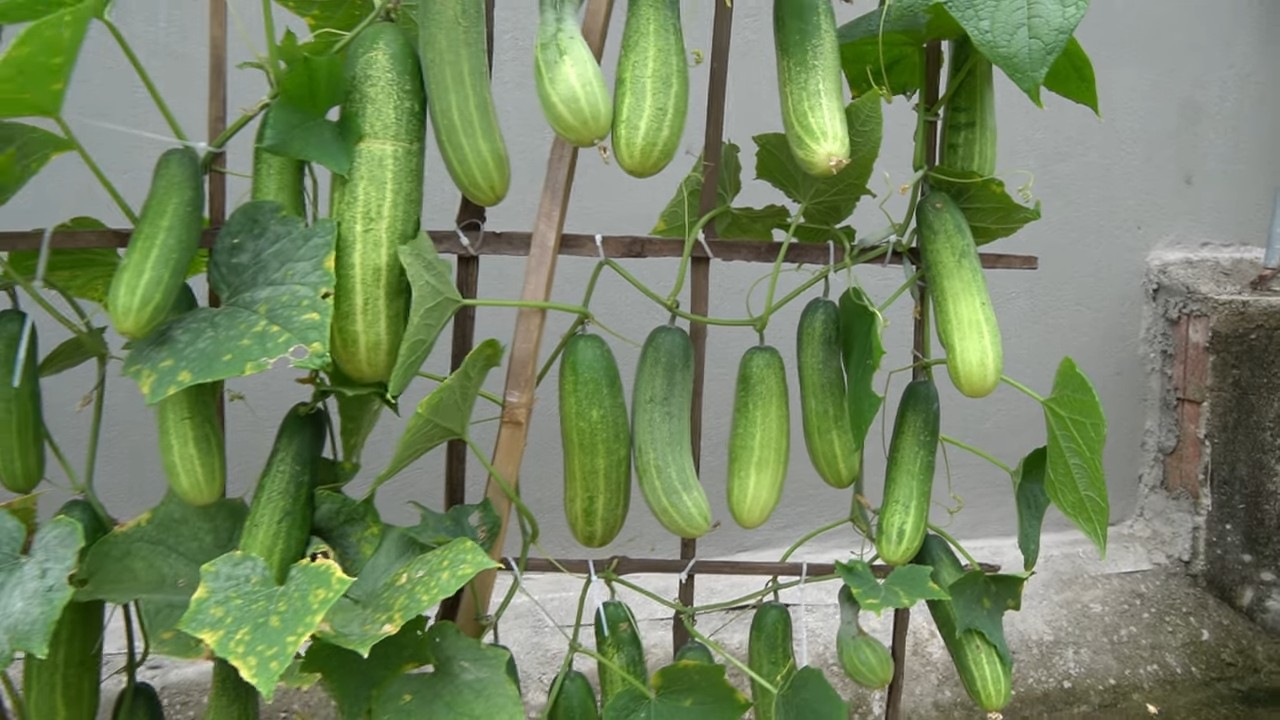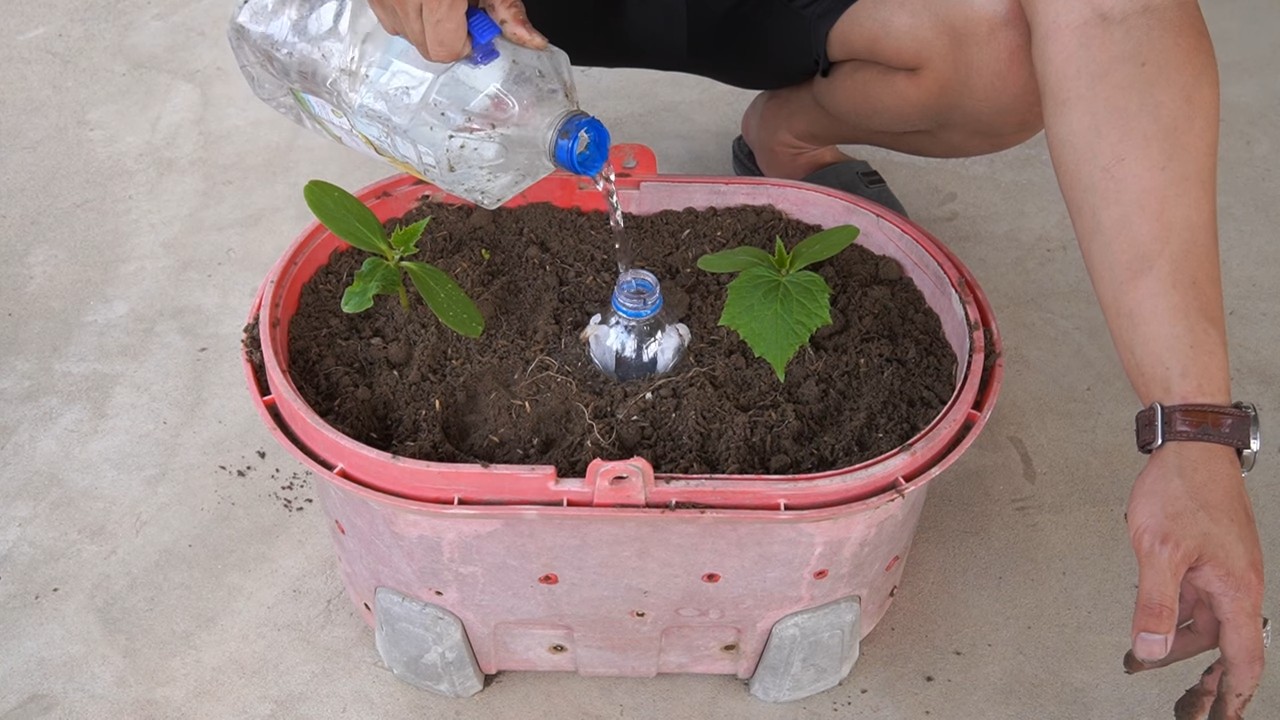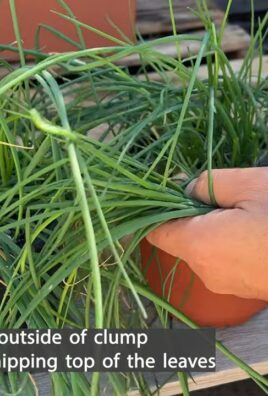Aloe vera water for cucumbers: Sounds like a spa treatment for your veggies, right? Well, in a way, it is! I’m so excited to share this simple yet powerful DIY trick that can seriously boost your cucumber harvest. Forget complicated fertilizers and expensive treatments; this is all about harnessing the natural power of aloe vera to give your cucumbers the love they deserve.
For centuries, aloe vera has been revered for its incredible healing properties. From soothing sunburns to aiding digestion, this succulent is a powerhouse of goodness. But did you know that its benefits extend to the garden as well? Using aloe vera water for cucumbers isn’t just some new-age fad; it’s a time-tested method that taps into the plant’s natural ability to promote growth, strengthen roots, and even protect against diseases.
Let’s face it, growing cucumbers can be a bit of a challenge. They’re prone to various issues, from powdery mildew to blossom end rot. But what if I told you that a simple aloe vera solution could help combat these problems and give you healthier, more productive plants? This DIY trick is a game-changer because it’s affordable, eco-friendly, and incredibly easy to implement. Plus, who doesn’t love a good gardening hack that saves time and money? So, let’s dive in and discover how to make your cucumbers thrive with the magic of aloe vera!

Aloe Vera Wasser für Gurken: Der ultimative DIY-Boost für deine Ernte!
Hallo liebe Gartenfreunde! Ich bin total begeistert, euch heute einen meiner absoluten Lieblings-DIY-Gartentricks zu zeigen: Aloe Vera Wasser für Gurken! Ja, ihr habt richtig gelesen. Das Wundermittel, das wir für unsere Hautpflege lieben, ist auch ein echter Game-Changer für unsere grünen Freunde, besonders für Gurken. Ich habe damit unglaubliche Ergebnisse erzielt, und ich bin sicher, ihr werdet es auch!
Warum Aloe Vera? Aloe Vera ist vollgepackt mit Enzymen, Aminosäuren, Vitaminen und Mineralien, die das Wachstum fördern, das Immunsystem stärken und sogar vor bestimmten Krankheiten schützen können. Für Gurken bedeutet das: stärkere Pflanzen, mehr Ertrag und gesündere Früchte.
Was du brauchst:
* Ein großes, reifes Aloe Vera Blatt (am besten aus dem eigenen Garten oder aus dem Bioladen)
* Sauberes Wasser (am besten gefiltert oder Regenwasser)
* Ein scharfes Messer oder eine Schere
* Ein Schneidebrett
* Ein Messbecher oder eine Küchenwaage
* Ein Mixer oder Pürierstab (optional, aber empfehlenswert)
* Eine Sprühflasche oder Gießkanne
Schritt-für-Schritt Anleitung: Aloe Vera Wasser selber machen
1. Aloe Vera Blatt vorbereiten: Wähle ein großes, reifes Aloe Vera Blatt aus. Je älter das Blatt, desto mehr Wirkstoffe enthält es. Schneide das Blatt vorsichtig am Ansatz ab. Achte darauf, die Pflanze nicht zu beschädigen.
2. Reinigung des Blattes: Spüle das Aloe Vera Blatt gründlich unter fließendem Wasser ab, um Schmutz und Staub zu entfernen.
3. Gel extrahieren: Lege das Blatt auf ein Schneidebrett. Schneide mit einem scharfen Messer die stacheligen Ränder des Blattes ab. Schneide dann die obere und untere Schicht des Blattes ab, sodass du nur noch das klare Gel in der Mitte hast. Alternativ kannst du das Gel auch mit einem Löffel auskratzen.
4. Gel zerkleinern: Gib das Aloe Vera Gel in einen Mixer oder verwende einen Pürierstab, um es zu zerkleinern. Das ist wichtig, damit sich das Gel später gut im Wasser verteilt. Wenn du keinen Mixer hast, kannst du das Gel auch mit einem Messer sehr fein hacken.
5. Aloe Vera Konzentrat herstellen: Das zerkleinerte Gel ist jetzt dein Aloe Vera Konzentrat. Du kannst es direkt verwenden oder für später aufbewahren.
6. Aloe Vera Wasser mischen: Für die Anwendung mische das Aloe Vera Konzentrat mit Wasser. Das Mischungsverhältnis ist entscheidend! Ich empfehle ein Verhältnis von 1:100. Das bedeutet, auf 1 Teil Aloe Vera Konzentrat kommen 100 Teile Wasser. Zum Beispiel: 10 ml Aloe Vera Konzentrat auf 1 Liter Wasser.
7. Anwendung: Fülle das Aloe Vera Wasser in eine Sprühflasche oder Gießkanne. Besprühe die Gurkenpflanzen damit oder gieße sie direkt an die Wurzeln.
Anwendungstipps und Tricks:
* Blattspray: Besprühe die Blätter deiner Gurkenpflanzen am besten früh morgens oder spät abends, wenn die Sonne nicht mehr so stark scheint. So vermeidest du Verbrennungen. Das Blattspray hilft, die Pflanzen mit wichtigen Nährstoffen zu versorgen und Schädlinge abzuwehren.
* Wurzelbehandlung: Gieße das Aloe Vera Wasser direkt an die Wurzeln der Gurkenpflanzen. Das stärkt die Wurzeln und fördert das Wachstum.
* Häufigkeit: Ich empfehle, das Aloe Vera Wasser alle 1-2 Wochen anzuwenden. Beobachte deine Pflanzen genau und passe die Häufigkeit bei Bedarf an.
* Lagerung: Das Aloe Vera Konzentrat kann im Kühlschrank für bis zu einer Woche aufbewahrt werden. Das fertige Aloe Vera Wasser sollte am besten sofort verwendet werden.
* Überdosierung vermeiden: Zu viel Aloe Vera kann schädlich für die Pflanzen sein. Halte dich unbedingt an das empfohlene Mischungsverhältnis.
* Kombination mit anderen Düngemitteln: Aloe Vera Wasser ist ein toller Zusatz, aber kein vollständiger Dünger. Du kannst es problemlos mit anderen organischen Düngemitteln kombinieren.
* Beobachtung ist wichtig: Jede Pflanze ist anders. Beobachte deine Gurkenpflanzen genau und passe die Anwendung von Aloe Vera Wasser an ihre Bedürfnisse an.
Warum Aloe Vera Wasser für Gurken so gut ist: Die Vorteile im Detail
Aloe Vera ist nicht nur ein Hype, sondern hat wirklich handfeste Vorteile für deine Gurkenpflanzen. Hier sind einige der wichtigsten:
* Wachstumsförderung: Aloe Vera enthält Gibberelline, natürliche Pflanzenhormone, die das Wachstum anregen. Das bedeutet, deine Gurkenpflanzen wachsen schneller und kräftiger.
* Stärkung des Immunsystems: Die Enzyme und Aminosäuren in Aloe Vera stärken das Immunsystem der Pflanzen und machen sie widerstandsfähiger gegen Krankheiten und Schädlinge.
* Verbesserung der Nährstoffaufnahme: Aloe Vera hilft den Pflanzen, Nährstoffe aus dem Boden besser aufzunehmen. Das ist besonders wichtig für Gurken, die Starkzehrer sind.
* Schutz vor Pilzkrankheiten: Aloe Vera hat antimikrobielle Eigenschaften, die helfen können, Pilzkrankheiten wie Mehltau zu verhindern.
* Bodenverbesserung: Aloe Vera kann die Bodenstruktur verbessern und die Wasserspeicherung erhöhen. Das ist besonders in trockenen Perioden von Vorteil.
* Stressabbau: Aloe Vera kann Pflanzen helfen, Stresssituationen wie Trockenheit, Hitze oder Kälte besser zu überstehen.
* Natürlicher Schädlingsbekämpfer: Einige Inhaltsstoffe in Aloe Vera können abschreckend auf Schädlinge wirken.
Aloe Vera Wasser für andere Pflanzen: Ein Allrounder im Garten
Gurken sind nicht die einzigen Pflanzen, die von Aloe Vera Wasser profitieren können. Viele andere Gemüsesorten, Kräuter und Zierpflanzen lieben es auch!
* Tomaten: Aloe Vera Wasser kann das Wachstum von Tomaten fördern und sie widerstandsfähiger gegen Krankheiten machen.
* Paprika: Ähnlich wie bei Tomaten kann Aloe Vera Wasser Paprika helfen, schneller zu wachsen und mehr Früchte zu tragen.
* Erdbeeren: Aloe Vera Wasser kann die Erdbeerernte verbessern und die Pflanzen vor Pilzkrankheiten schützen.
* Kräuter: Basilikum, Petersilie, Schnittlauch und andere Kräuter lieben Aloe Vera Wasser. Es macht sie aromatischer und widerstandsfähiger.
* Zierpflanzen: Zimmerpflanzen und Gartenblumen profitieren ebenfalls von Aloe Vera Wasser. Es macht sie kräftiger und blühfreudiger.
Wichtig: Nicht alle Pflanzen mögen Aloe Vera Wasser. Teste es am besten zuerst an einer kleinen Stelle, bevor du die ganze Pflanze behandelst.
Wo bekomme ich Aloe Vera Blätter?
Am besten ist es natürlich, wenn du deine eigene Aloe Vera Pflanze hast. Sie ist pflegeleicht und liefert dir immer frische Blätter. Wenn du keine eigene Pflanze hast, kannst du Aloe Vera Blätter auch im Bioladen, in der Apotheke oder online kaufen. Achte darauf, dass die Blätter frisch und von guter Qualität sind.
Meine persönlichen Erfahrungen mit Aloe Vera Wasser für Gurken
Ich habe Aloe Vera Wasser seit einigen Jahren für meine Gurken verwendet und bin jedes Mal aufs Neue begeistert. Meine Gurkenpflanzen sind kräftiger, gesünder und tragen viel mehr Früchte. Außerdem habe ich weniger Probleme mit Krankheiten und Schädlingen. Ich kann es wirklich jedem Gartenfreund empfehlen!
Ich hoffe, dieser Artikel hat dir geholfen und inspiriert, Aloe Vera Wasser für deine Gurken auszuprobieren. Viel Erfolg und eine reiche Ernte! Und denk daran: Gartenarbeit soll Spaß machen! Also, probier dich aus, experimentiere und genieße die Zeit in deinem Garten.

Conclusion
So, there you have it! Transforming ordinary tap water into a potent elixir for your cucumber plants using the magic of aloe vera is not just a simple DIY trick; it’s a game-changer for your gardening efforts. We’ve explored how this natural solution can boost growth, enhance disease resistance, and ultimately lead to a more abundant and flavorful cucumber harvest.
Why is this a must-try? Because it’s effective, economical, and environmentally friendly. You’re harnessing the power of nature to nurture your plants, avoiding harsh chemicals and synthetic fertilizers that can harm the soil and the environment. Plus, if you already have an aloe vera plant, you’re essentially recycling its beneficial properties to create a valuable resource for your garden. It’s a win-win situation!
But the benefits don’t stop there. This aloe vera water for cucumbers isn’t a one-size-fits-all solution. Feel free to experiment and adapt it to your specific needs and preferences.
Here are a few suggestions and variations to consider:
* Adjust the Concentration: Start with the recommended ratio of aloe vera gel to water, but observe your plants closely. If you notice any signs of over-fertilization (such as leaf burn), dilute the mixture further. Conversely, if your plants seem to need an extra boost, you can slightly increase the concentration.
* Add Other Nutrients: While aloe vera provides a wealth of benefits, you can supplement it with other natural fertilizers. Consider adding a small amount of compost tea or fish emulsion to the aloe vera water for an extra dose of nutrients.
* Foliar Spray: In addition to watering the soil, you can also use aloe vera water as a foliar spray. This allows the plants to absorb the nutrients directly through their leaves, providing a quick and effective boost. Be sure to spray in the early morning or late evening to avoid leaf burn from the sun.
* Seed Starting: Aloe vera water can also be used to improve seed germination. Soak your cucumber seeds in a diluted solution of aloe vera water for a few hours before planting to increase their chances of sprouting.
* Rooting Cuttings: If you’re propagating cucumbers from cuttings, aloe vera water can help promote root growth. Dip the cut ends of the cuttings in aloe vera gel before planting them in soil.
We are confident that incorporating this simple yet powerful DIY trick into your gardening routine will yield impressive results. Imagine biting into a crisp, juicy cucumber that you’ve grown yourself, knowing that you’ve nurtured it with the goodness of aloe vera. The satisfaction is unparalleled!
So, what are you waiting for? Give this aloe vera water for cucumbers a try and witness the difference it makes in your garden. We encourage you to share your experiences with us! Let us know how it worked for you, any variations you tried, and any tips you have to offer. Together, we can create a community of gardeners who are passionate about using natural and sustainable methods to grow healthy and delicious food. Happy gardening!
Frequently Asked Questions (FAQ)
1. How often should I water my cucumber plants with aloe vera water?
The frequency of watering with aloe vera water depends on several factors, including the weather, soil type, and the age of your plants. As a general guideline, water your cucumber plants with aloe vera water every 1-2 weeks. During hot and dry periods, you may need to water more frequently. Always check the soil moisture before watering. If the top inch of soil feels dry, it’s time to water. Avoid overwatering, as this can lead to root rot. Remember that consistent moisture is key for cucumber development, but well-draining soil is equally important to prevent waterlogged conditions.
2. Can I use store-bought aloe vera gel instead of fresh aloe vera leaves?
Yes, you can use store-bought aloe vera gel, but it’s crucial to choose a product that is as pure as possible. Look for aloe vera gel that contains a high percentage of aloe vera and minimal additives, preservatives, or artificial ingredients. Avoid gels that contain alcohol, as this can be harmful to plants. Also, be aware that some store-bought aloe vera gels may be processed in a way that reduces their beneficial properties. Fresh aloe vera leaves are always the preferred option, as they contain the highest concentration of nutrients and enzymes. However, if fresh leaves are not available, a high-quality store-bought gel can be a suitable alternative.
3. Is aloe vera water safe for all types of plants?
While aloe vera water is generally safe and beneficial for most plants, it’s always a good idea to test it on a small area first, especially if you’re using it on a plant you’ve never used it on before. Some plants may be more sensitive to aloe vera than others. Observe the plant for any signs of adverse reactions, such as leaf burn or discoloration. If you notice any problems, discontinue use. Aloe vera is known to be particularly beneficial for vegetables like tomatoes, peppers, and cucumbers, as well as herbs and flowering plants. However, it’s always best to err on the side of caution and test it on a small area before applying it to the entire plant.
4. Can I use too much aloe vera in the water? What are the signs of over-fertilization?
Yes, it is possible to use too much aloe vera in the water, which can lead to over-fertilization. Over-fertilization can damage your cucumber plants. Signs of over-fertilization include:
* Leaf Burn: The tips and edges of the leaves may turn brown and crispy.
* Stunted Growth: The plant may stop growing or grow very slowly.
* Salt Buildup: A white crust may form on the soil surface.
* Wilting: The plant may wilt even when the soil is moist.
If you notice any of these signs, reduce the concentration of aloe vera in the water or discontinue use altogether. Flush the soil with plain water to remove excess nutrients.
5. How does aloe vera water help cucumber plants resist disease?
Aloe vera contains several compounds that can help cucumber plants resist disease. These compounds include:
* Salicylic Acid: A natural plant hormone that triggers the plant’s defense mechanisms, making it more resistant to pathogens.
* Polysaccharides: Complex carbohydrates that stimulate the plant’s immune system.
* Enzymes: Proteins that break down harmful substances and promote healthy cell growth.
By strengthening the plant’s immune system and providing essential nutrients, aloe vera water can help cucumber plants fight off common diseases such as powdery mildew, downy mildew, and fungal infections.
6. Can I use aloe vera water on other vegetables in my garden?
Absolutely! The benefits of aloe vera water extend beyond cucumber plants. It can be used on a wide variety of vegetables, including tomatoes, peppers, eggplants, zucchini, and squash. Aloe vera water can help improve seed germination, promote root growth, enhance nutrient uptake, and increase disease resistance in these plants. Simply follow the same guidelines as you would for cucumber plants, adjusting the concentration and frequency of watering as needed. Experiment and observe how your plants respond to the aloe vera water, and adjust your approach accordingly.
7. How should I store leftover aloe vera water?
Leftover aloe vera water should be stored in a cool, dark place in an airtight container. A refrigerator is ideal, as it will help to preserve the beneficial properties of the aloe vera. Properly stored aloe vera water can last for up to a week. However, it’s best to use it as soon as possible to ensure maximum effectiveness. Before using stored aloe vera water, give it a good shake to redistribute any settled particles. If the water develops an unusual odor or appearance, discard it.
8. Is it safe to use aloe vera water on organic cucumber plants?
Yes, aloe vera water is perfectly safe and highly recommended for organic cucumber plants. It is a natural and sustainable alternative to synthetic fertilizers and pesticides. Aloe vera is derived from a plant and contains no harmful chemicals or additives. By using aloe vera water, you can nourish your organic cucumber plants with essential nutrients and enhance their disease resistance without compromising your organic gardening principles. It’s a win-win situation for both your plants and the environment.




Leave a Comment